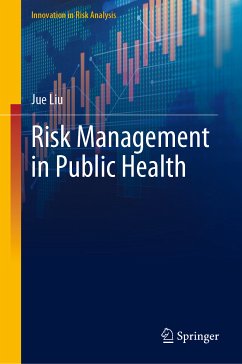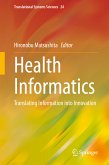This book provides readers with a conceptual and applied understanding of the role of risk management in public health issues. In recent years, public health emergencies of international concern have occurred frequently, such as COVID-19 pandemic and multi-country outbreak of monkeypox. Due to the diversity of pathogens, epidemic uncertainty, rapid transmission, extensive impact, and difficulty in governance of emerging infectious diseases, there is a great threat to global health, security and economy. With the development of science and technology, new technologies have also been applied to respond to major public health events, such as big data analysis and active monitoring technology, which have also played an important role in risk management of COVID-19. The progress of health data science has enriched the practice of preparedness and response to major global public health issues. In addition to classic theory and practice on risk management, this book introduces new progresson theories and practices of risk management in public health. The ten chapters are organized under two parts including theories and practices in major public health issues.
This book is an essential and timely resource for public health managers, donors, practitioners, organizations, researchers, teachers who are interested and engaged in prevention and control on public health issues and risk management. These audiences should benefit from this approach as the book highlights the theory and practice of public health risk management from a more comprehensive perspective, which were seldom covered before.
Dieser Download kann aus rechtlichen Gründen nur mit Rechnungsadresse in A, B, BG, CY, CZ, D, DK, EW, E, FIN, F, GR, HR, H, IRL, I, LT, L, LR, M, NL, PL, P, R, S, SLO, SK ausgeliefert werden.









